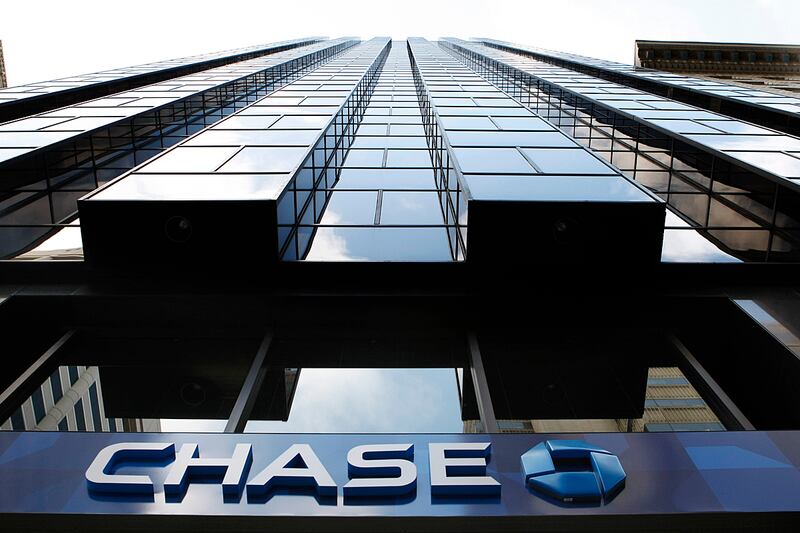In a surprising announcement late yesterday afternoon, JPMorganChase, one of the largest banks in the world, announced that it had suffered massive losses in an internal fund meant to shield the bank from … massive losses. CEO Jamie Dimon, who had until now steered his behemoth institution with a remarkable degree of skill and lack of the hubris that characterizes the industry, admitted that traders of this internal fund had made “egregious” errors. As he explained in a quickly convened conference call, “In hindsight, the strategy was flawed, complex, poorly reviewed, poorly executed and poorly monitored.”
This episode is significant, though not because of the size of the losses and not in the way that the various incidents of “rogue trading” at UBS and elsewhere were. Those traders imperiled the financial viability of their firms and exposed poor risk controls in the face of relentless pressure for more income. This blow-up reveals the opposite: the degree of risk banks now court in the efforts to avoid losses. In spite of the opprobrium for Wall Street, the most egregious issue facing the financial industry, and the U.S. and Europe economies of which they are an integral part, is not the prevalence of risk-taking but the absence of it.
Initial estimates place the losses at close to $2 billion, with at least $800 million due to be recognized this quarter. The bank warned that total losses could potentially exceed $4 billion by the end of the year.
These are large numbers, to be sure, but then again, JPMorganChase is a large bank. Its annual revenue will likely top $100 billion this year, and in the first quarter, it made $5.4 billion in profit. Against those numbers, $2 billion is still a lot, but not quite as dramatic as it seems at first blush.
What is startling is the nature of the losses. We are told that they stem from an internal fund that invested in highly complex derivatives linked to credit markets, in essence the same instruments that lay at the heart of the financial crisis of 2008.
Lest there were any illusions about the way in which the financial industry has changed in the past four years, the use of structured products and complex derivatives (which in this case were termed “synthetic credit positions”) remains a cornerstone of the way large financial institutions manage risk. Even the vaunted reforms of the Dodd-Frank bill and the so-called Volcker Rule meant to ban depository banks from derivatives trades using deposits that are insured by the federal government would not necessarily prevent an institution such as JPMorgan from engaging in the activity that resulted in these losses. The bank set up the internal fund to hedge its own capital—not deposits—against potential risks from its various loans; clearly it failed.

That failure will surely strengthen those who want more stringent restriction on the internal trading conducted by banks. A spokesperson for Sen. Jeff Markely (D-OR), one of the proponents of tighter restrictions, said the JPMorgan debacle “speaks for itself” and is further proof that more stringent rules are necessary. Dimon acknowledged as much during his conference call, admitting that this news will be ammunition to pundits and politicians calling for new rules.
Dimon has been an outspoken critic of the spate of legislation that followed the financial crisis. He has argued that the labyrinthine laws embedded in Dodd-Frank add layers of regulation and complexity to an already chaotic regulatory structure. He has a point. The financial industry is overregulated in the sense of multiple agencies demanding compliance and looking for problems. The banks may have been bailed out, but they now face a web of new rules that are so complicated that two years after the legislation has been passed many of those actual rules have yet to be clarified.
At the same time, the thicket of regulation lacks any sense of the common good served by a free-flow of finance and capital, whether in the form of mortgage financing and refinancing, small business loans, or any of the myriad forms of capital necessary to fuel economic growth. The goal should be to enable that flow without allowing undue systemic risk and greed to imperil it. The current mass of regulations manages to inhibit banks from extending credit while simultaneously not doing enough to monitor risk. They are flawed not because, as Republicans would argue, they are a sign of government overreach, but because they are badly conceived.
What they have done, however, is give banks incentive to avoid risk—and yet banks also must demonstrate to shareholders that they are making money. The result is that financial institutions do what they did before the crisis: they use derivatives in an attempt to offset business risks, in this case the risk of losses tied to volatile and unstable credit markets both in Europe and in the U.S. domestic housing market. But because there is no such thing as risk-free risk-mitigation, banks then create a similar set of ticking time bombs, this time based on loss avoidance rather than on pure gain.
The structural problem remains that these large institutions combine so many contradictory functions—ranging from providing banking branches so that we can deposit paychecks and get money at ATMs to providing financing for mega-corporate deals and Facebook IPOs.
The regulatory framework is dense, but that doesn’t make it efficient; banks are not indulging in an orgy of speculation as they were in the mid-2000s, but they are still striving for substantial profits and obsessed with avoiding the risks of the last decade.
The combination has not been helpful for economic growth. It has hampered the flow of capital and added to the sclerotic recovery. This blow-up at JPMorgan should be a trigger to review the banking system and tailor the still-chaotic regulatory framework to dealing with systemic risks on the one hand and the need to get capital flowing on the other. That would be a bold move by government and business, rather than rehashing a familiar—yet in this case inaccurate—story of greed gone awry, insufficient oversight, and the evils of derivatives. Another opportunity lost, it seems. Fortunately, and unfortunately, there will be others.






